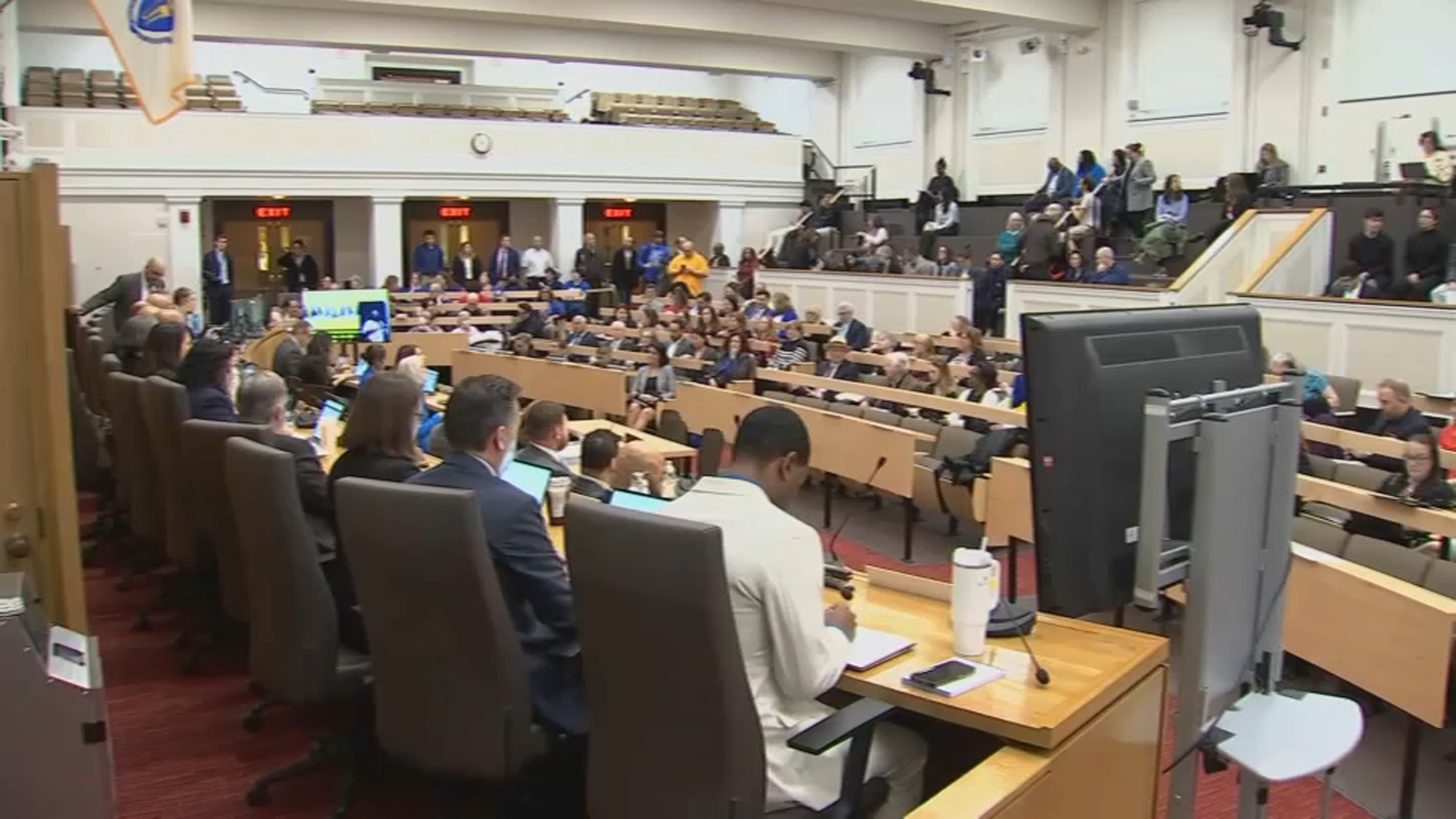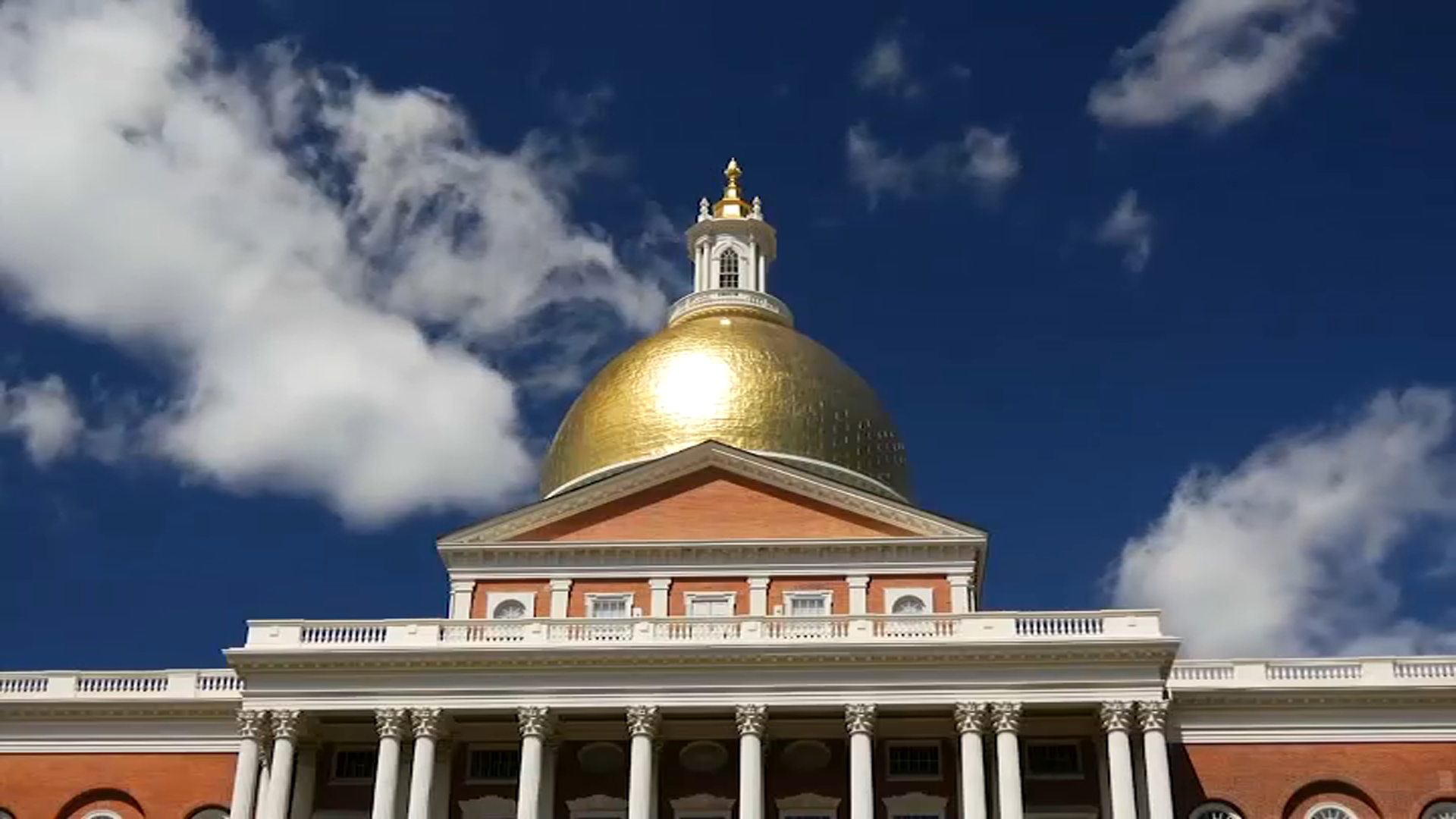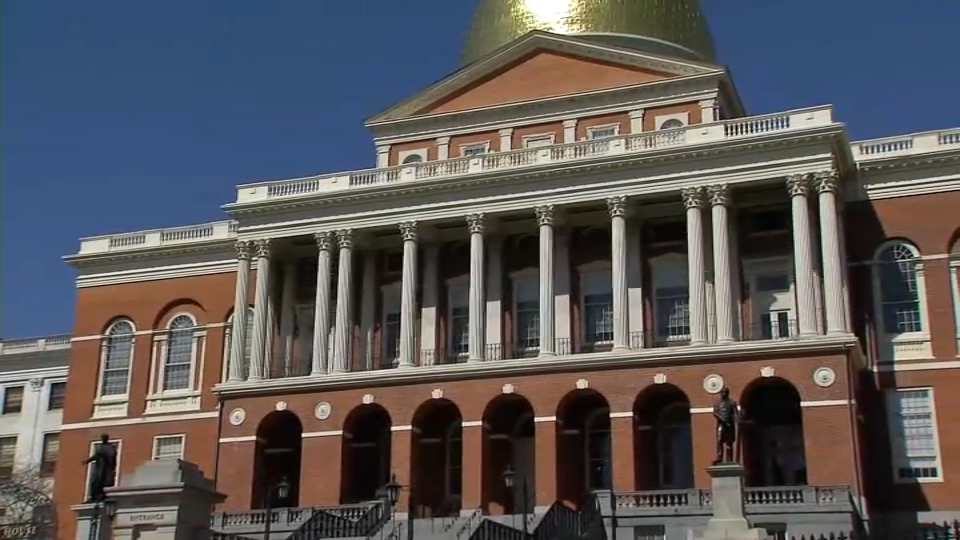The MBTA, the state shelter system and pushing back on the Trump agenda are all part of the proposed 2026 budget brought forward Wednesday in the Massachusetts House. Here’s a look at the $61 billion budget proposal.
Democrats in the Massachusetts State House will push for a significant increase in state spending after months of voicing discomfort about federal funding uncertainty and economic upheaval.
The House Ways and Means Committee on Wednesday will roll out a $61.4 billion annual budget for fiscal year 2026, a plan whose combined traditional and wealth surtax spending is about 6.4% higher than the budget Gov. Maura Healey signed last summer.
Stream NBC10 Boston news for free, 24/7, wherever you are.
Lawmakers traditionally add spending to the budget through the amendment process, which will unfold when the House takes up the proposal during the week of April 28.
Beacon Hill has been wracked with angst for months about President Donald Trump's dramatic efforts to cut federal spending, which could whittle away significant dollars that flow toward state governments. Healey previously estimated that federal revenue would contribute about $16 billion toward her budget plan.
Get updates on what's happening in Boston to your inbox with our News Headlines newsletter.
House budget chief Aaron Michlewitz said representatives "feel confident" that they can sustain spending growth at more than twice the rate of the prior year.
"In some respects, there's greater need, like in food insecurity and places like that. I think our budget is balanced, it's responsible," Michlewitz told reporters. "We feel that it provides the services that are necessary in these times, which is unprecedented in terms of the chaos that we're dealing with from not having a reliable partner on the federal side of things."
The House budget is the first major state spending plan for next year to emerge after Trump and Republicans moved to significantly overhaul federal funding.
While the bottom line may grow during House budget debate, mostly through mega-amendments constructed in private that steer millions of dollars to local earmarks, the House Ways and Means Committee draft starts nearly $600 million lower than Healey's plan.
More on funding in Mass.
Michlewitz said with a slightly smaller bottom line than Healey proposed, the House budget would enable the state to be able to better respond to federal cuts that might materialize.
"The aggressive actions of the new administration in Washington, particularly around tariffs, will only drive prices up and will further put pressure on both the state's fiscal outlook and people's wallets," Michlewitz said. "A trade war on top of unilateral funding freezes and a general sense of chaos emulating out of our nation's capital leads to major challenges towards constructing a budget, to say the least. The worst-case scenario for a budget writer is uncertainty. When faced with cuts, we know where we can cut. When faced with a surplus, we know what we can add. But not knowing what the future will bring means that we have to plan for anything and everything."

The House Ways and Means budget redraft omits a series of new taxes and tax increases Healey proposed in her version, including a charitable donation cap and a tax on prescription drug manufacturers for excessive price increases, together worth an estimated $471 million in revenue.
The panel matched Healey's proposal to draw about $1.6 billion from one-time sources to pay for spending increases, including an idea to redirect more than half a billion dollars in capital gains tax collections that normally would be deposited into the state's long-term savings account.
Some of the spending growth would be driven by the voter-approved surtax on wealthy households. In the fiscal 2025 spending plan, lawmakers and Healey agreed to use $1.3 billion in revenue from that source; in fiscal 2026, that would rise to $1.95 billion.
Surtax dollars in the House budget would continue to fund free school meals for all students, early education grants, and free community college. They would also contribute to a significant increase in funding for the MBTA -- the House proposes a total of $687 million for T operating costs -- at a time when the transit agency faces a major funding gap that could imperil recent service improvements.
The largest area of spending remains MassHealth, which combines Medicaid and the Children's Health Insurance Program under one umbrella. House Democrats proposed $22.43 billion for the program, a $2.36 billion increase over last year's budget.
Much of that money is traditionally reimbursed by the federal government, but Republicans in Washington, D.C. are seriously considering deep Medicaid spending cuts in part to fulfill their tax relief goals.
House Democrats packed their plan with several noteworthy policy riders. The bill would expand the duration of a pilot program at the Massachusetts Health Connector from two years to three years, and raise the eligibility threshold for subsidized ConnectorCare coverage from 300% of the federal poverty level to 500%.
Michlewitz and House Speaker Ron Mariano now also appear to be on board with limiting the impact of broker fees on renters, an idea that House Democrats killed during negotiations with the Senate on a housing bond bill last year.
The House budget would prohibit a real estate broker from charging a tenant or prospective tenant for finding an apartment if the renter did not initiate use of the broker's services. Mariano said the measure would ensure "that the party who hires the broker ultimately pays the fee."
"While shifting the burden of those fees is only one facet of our effort to bring down the cost of renting here in the commonwealth, the fees are simply unfair," Mariano said. "It's an unfair cost for renters who do not contract a broker and therefore should not have that as a responsibility."
Representatives outlined significant changes to education funding and policy compared to Healey's budget, calling for a minimum school aid amount of $150 per student, compared to $75 per student in Healey's budget, and moving to block any changes to vocational school admissions policies for at least a year.
Their budget also seeks a cut in funding for the emergency assistance shelter program, which for much of Healey's term has been crushed by soaring demand.
Lawmakers and Healey have agreed to several additional rounds of dollars to the program, pushing the annual cost close to $1 billion, while implementing reforms designed to cut eligibility, length of stay and caseloads.
The House budget -- rolled out as the Healey administration said current caseloads in shelters dropped below 5,000 for the first time in nearly two years -- would fund the program at $275 million in fiscal 2026.




